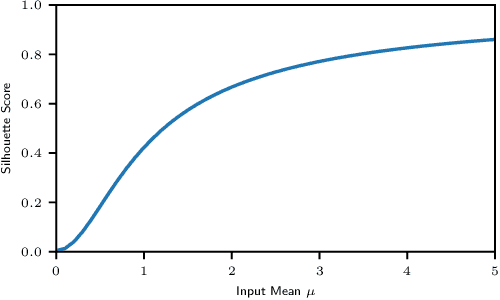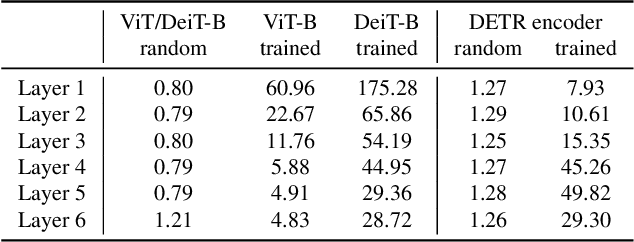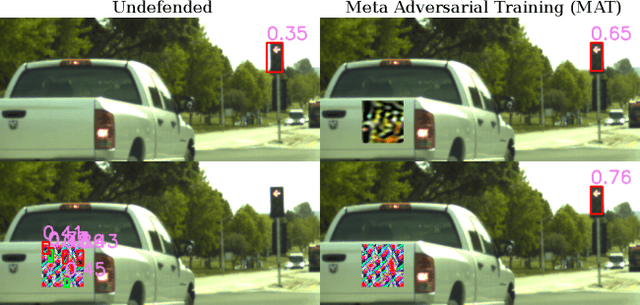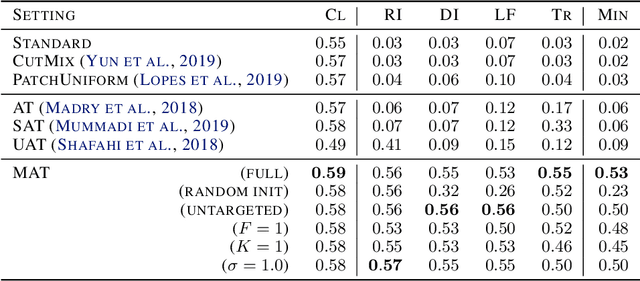Nicole Finnie
Give Me Your Attention: Dot-Product Attention Considered Harmful for Adversarial Patch Robustness
Mar 25, 2022



Abstract:Neural architectures based on attention such as vision transformers are revolutionizing image recognition. Their main benefit is that attention allows reasoning about all parts of a scene jointly. In this paper, we show how the global reasoning of (scaled) dot-product attention can be the source of a major vulnerability when confronted with adversarial patch attacks. We provide a theoretical understanding of this vulnerability and relate it to an adversary's ability to misdirect the attention of all queries to a single key token under the control of the adversarial patch. We propose novel adversarial objectives for crafting adversarial patches which target this vulnerability explicitly. We show the effectiveness of the proposed patch attacks on popular image classification (ViTs and DeiTs) and object detection models (DETR). We find that adversarial patches occupying 0.5% of the input can lead to robust accuracies as low as 0% for ViT on ImageNet, and reduce the mAP of DETR on MS COCO to less than 3%.
Meta Adversarial Training
Jan 27, 2021



Abstract:Recently demonstrated physical-world adversarial attacks have exposed vulnerabilities in perception systems that pose severe risks for safety-critical applications such as autonomous driving. These attacks place adversarial artifacts in the physical world that indirectly cause the addition of universal perturbations to inputs of a model that can fool it in a variety of contexts. Adversarial training is the most effective defense against image-dependent adversarial attacks. However, tailoring adversarial training to universal perturbations is computationally expensive since the optimal universal perturbations depend on the model weights which change during training. We propose meta adversarial training (MAT), a novel combination of adversarial training with meta-learning, which overcomes this challenge by meta-learning universal perturbations along with model training. MAT requires little extra computation while continuously adapting a large set of perturbations to the current model. We present results for universal patch and universal perturbation attacks on image classification and traffic-light detection. MAT considerably increases robustness against universal patch attacks compared to prior work.
 Add to Chrome
Add to Chrome Add to Firefox
Add to Firefox Add to Edge
Add to Edge